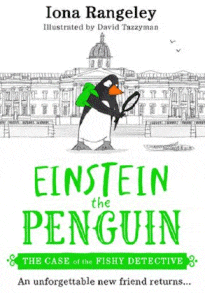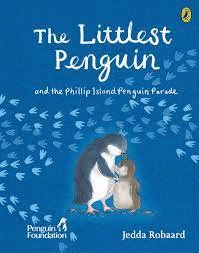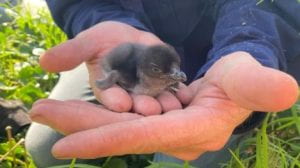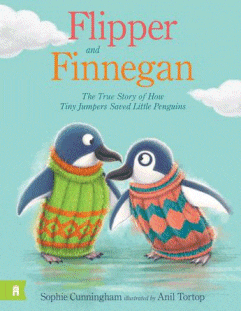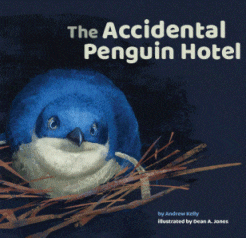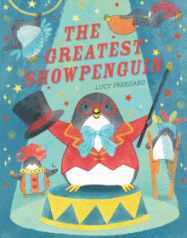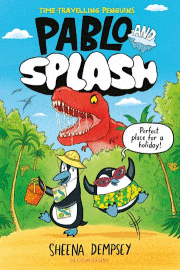
Pablo and Splash
Pablo and Splash
Sheena Dempsey
Bloomsbury, 2024
240pp., graphic novel, RRP $A17.99
9781526662606
Pablo and Splash are two penguins, and even though they are very different in that Pablo loves his icy home and Splash is sick of the cold, they both agree that a holiday would be a good thing. But it’s tricky when you live at the bottom of the planet in Antarctica and warm places are too far to swim and without wings, you can’t fly.
But Antarctica means there are scientists nearby and surely they have a solution… However on their way to visit them, they fall down a hole in the ice into the clutches of Professor O’Brain and her Timebender machine and before they know it they are on the beach they were dreaming of, but they are sharing it with dinosaurs. Can these accidental explorers find their way home? Or will they be stuck in the past, avoiding becoming the next meal for the locals?
With its classic theme of “be careful what you wish for” as well as the familiar time-travelling theme that takes readers to times past and future, this is a full-colour graphic novel that will delight fans of this genre. Stories about penguins and dinosaurs individually are always favourites so combining the two into a story that engages while it educates will have broad appeal, and its undertones of the enduring friendship between two characters despite their differences will resonate with many.
This is the first in this series that has the potential to not only appeal to its intended audience of young independent readers but also introduce them to times past that might spark an interest in further investigation. I wonder where they will go next… Where would the reader like them to go? If they came to Australia at a particular time in our history, such as the gold rush, what hazards might they encounter? Perhaps an interesting story starter that could show you what the students know…
